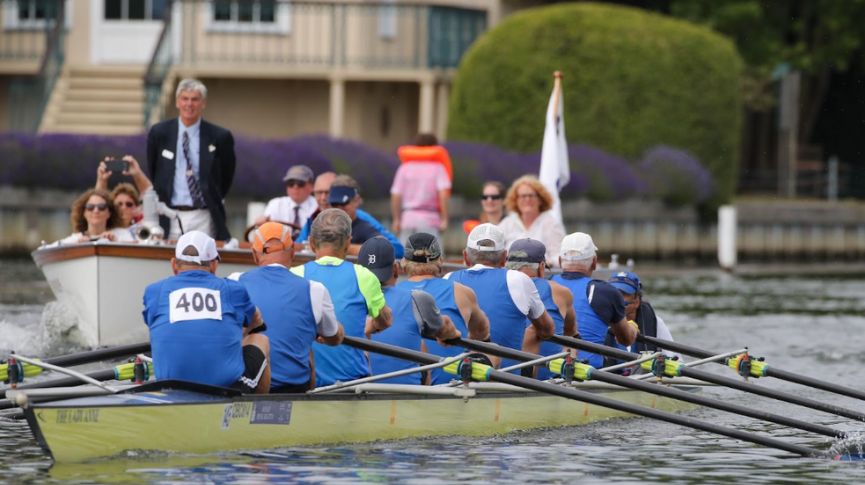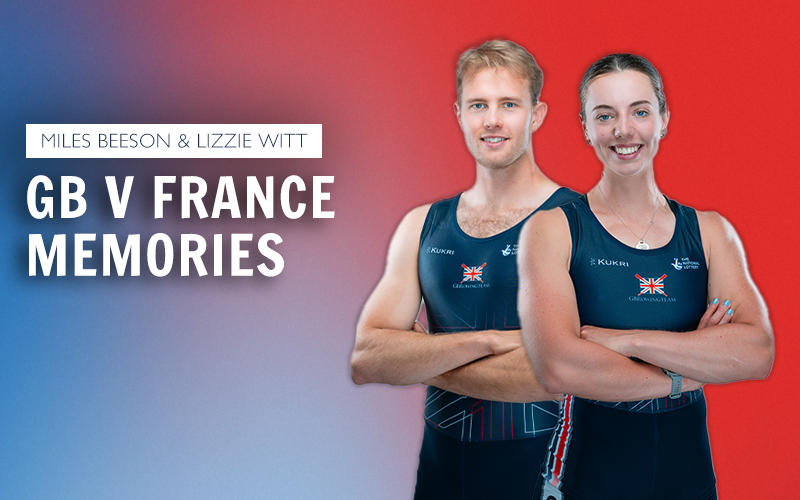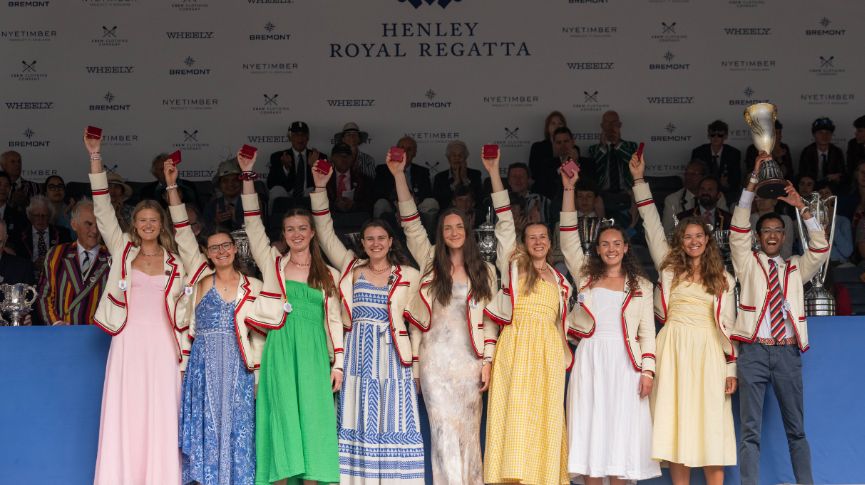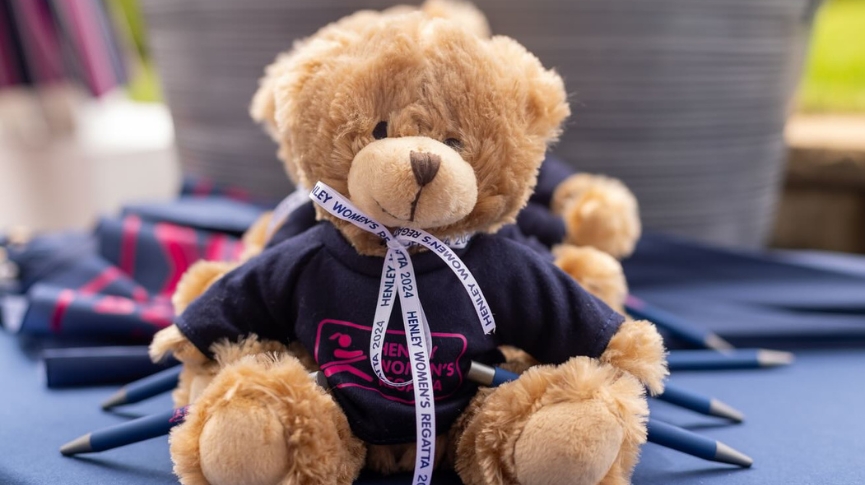An update on the British Rowing governance review
A message from Chairman, Annamarie Phelps, and we answer some frequently asked questions surrounding the British Rowing governance review
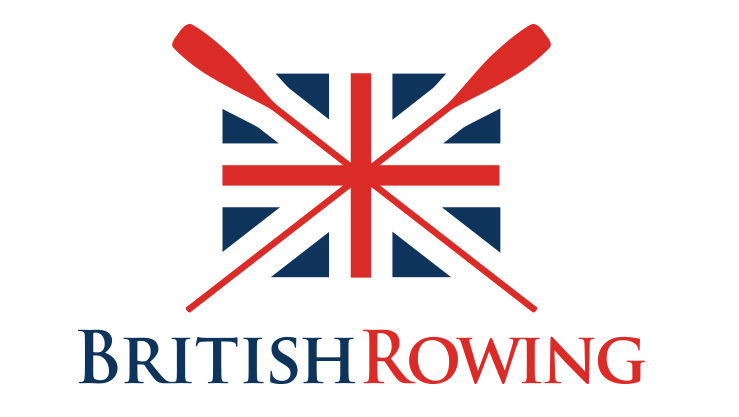
A message from Annamarie Phelps, Chairman of British Rowing
“It has been nearly three months since it was announced that, as a result of the UK Government’s new Code for Sports Governance, I am required to step down as Chairman of British Rowing, alongside Deputy Chairman Gary Harris, and Council members Christopher Anton and Bonner Davies. This is due to the time we have served on the Board and Council, to ensure British Rowing is compliant with the new Code.
“Firstly, I would like to extend my thanks to everyone within the rowing community who has shared so many well wishes with myself, Gary, Chris and Bonner. It really does show the strong community we have in rowing.
“While I know it came as a shock to many and, on a personal level, I am of course disappointed that I cannot complete my second full-term as Chairman, I am supportive of the new Code. It is only right that sports organisations that receive substantial public funding are held to high governance standards. Not only that; it also provides British Rowing with the opportunity to evolve our governance structure and make changes in the long-term interest of the sport.
“In order to do this most effectively, we need the rowing community to work together in driving forward the sport to make it even more inclusive, diverse and innovative so we not only survive but thrive in the future.
“Last week, I had another meeting with the Regional Chairmen, who are elected by the rowing community within their respective region. It was a highly productive meeting in which we discussed how the rowing community can continue to develop the sport within a new governance framework. I am now taking the outputs from this discussion and, with support from the Governance Working Group, finalising the new governance structure.
“The new governance structure will then be shared with affiliated clubs and events in advance of the AGM in October, where the changes will be voted on by the current voting members. Now, more than ever, is the time for the rowing community to pull together as one team to safeguard rowing now and for the future.”
Governance review FAQ
As part of the governance review, British Rowing has been listening to feedback from the rowing community. In listening to the sport, there have been some common questions that have come up, which we’ve addressed below.
If you have a question about the governance review then please email us with the subject line “Governance Review” and we’ll do our best to answer it.
Q. Will the next Chairman be a rower?
A. Not necessarily, but an open recruitment process will start in November, so if there are rowers or ex-rowers who have the relevant skill-set and are interested they should consider applying.
Q. How will the next Chairman be appointed?
A. An open recruitment process will be put in place and a role description will be available at this time. The Nominations Committee will be responsible for shortlisting applicants and will then conduct interviews. From there, a recommendation to the Board of British Rowing will be made for approval.
Q. How can the Board oversee the organisation of British Rowing as well as the technical elements of the sport that need to be undertaken?
A. The Board is, and will be, responsible for the strategic direction and long-term health of the organisation. The Board and staff will continue to rely on the Regional Councils and the Sport Committee to carry on the invaluable role they do in drafting the Rules of Racing, overseeing water safety in our sport and the many other jobs our volunteers deliver.
Q. None of the Board will be rowers so how can they oversee the sport?
A. Four of the Board (currently 12 people) will be directly elected by the sport; notably the Deputy Chairman, Chairman of the Sport Committee and two others.
The Chairman will be an appointed person through an open recruitment process with four other Independent Directors appointed through the same process.
The Athlete Director is elected by the national team (currently Nathaniel Reilly-O’Donnell until 2018), a Home Nations Director is appointed on a rotational basis between Scottish Rowing and Welsh Rowing, with the CEO holding the final place on the Board. This provides a set of individuals with both rowing and business skills and experience.
Of the current group of Independent Directors, two currently row at club level and the other two used to row regularly while at university.
Q. Who will vote at future AGMs?
A. This is still to be determined. A Governance Working Group comprising of members of Council, Board and an independent lawyer have been considering this aspect and will be presenting two options to the Board at their September meeting.
The options that are being discussed relate to a similar make up that currently exists, and an option which encompasses a broader voting group. Both options have advantages and disadvantages and the intention is to agree a practical solution that is in keeping with a membership organisation with a regional structure.
The Regional Chairmen have also met twice and contributed to this discussion. Soon after the September Board meeting, AGM papers will be circulated setting out the consensus view of who should vote at the AGM. It will fundamentally be the rowing community voting at future AGMs.
Q. The AGM will only happen once a year. How is the Board held to account throughout the year?
A. As with any organisation, the AGM is the place where the Board reports on annual performance. It is the intention to expand the agenda to incorporate reports from the CEO and Chairman of the Sport Committee alongside that of the Chairman.
If the AGM is unhappy with the performance of the organisation then it can pass a resolution of no confidence in the Board. Irrespective of the outcome of the AGM, the rowing community will still be appointing four Board members (see above) and have the ability to challenge and contribute to the direction of the organisation through a proposed newly established Regional Chairman Forum.
In addition, there are various other controls in place, including oversight by UK Sport and Sport England, an annual external audit of finances as well as an Audit & Risk Committee chaired by one of the Independent Directors.
Q. What is the Regional Chairman Forum and is it the same as the Council?
A. The Code of Sports Governance requires the Board to be the final decision maker. This renders the current authority of the Council redundant.
It is being proposed, however, that a smaller forum be established which would include the Chairmen of each Regional Council to enable consultation on key matters to take place and specifically on matters which impact on British Rowing members and clubs before approval by the Board.
It is, therefore, similar to the Council but intended to be more manageable in size and should be a more effective communication channel for the sport.
Q. Why are the Regional Councils important?
A. Rowing in England has been organised on a regionally representative basis for a long time and the new structure is intended to ensure that local and regional initiatives are listened to, coordinated and delivered. The Board is very keen to retain the regional makeup of the sport and the proposed changes to our governance framework are intended to strengthen the Regional Councils capacity to fulfil this role.
Q. If affiliated and/or indivdual members don’t appoint the Board, how can we be sure that the Board acts in the best interest of the sport and its members?
A. The sport, which includes British Rowing members, clubs and events, are responsible for appointing four members of the Board, including the Deputy Chairman and Chairman of the Sport Committee.
All Board members sign up to a Code of Conduct which explicitly requires them to act in the best interests of the sport and organisation. If the affiliated members feel that this is not being adhered to then the AGM is the place for such concerns to be raised and addressed.
Q. Will the Sport Committee’s role be reduced under this framework?
A. No, the opposite is true. Rather than the Sport Committee reporting to the Council, the Sport Committee will report directly to the Board. The Chairman of the Sport Committee shall continue to be a Board member and is seen as a critical role in the future success of the sport and organisation. The Regional Councils have a direct input to the work of the Sport Committee through their representation on the standing committees.


